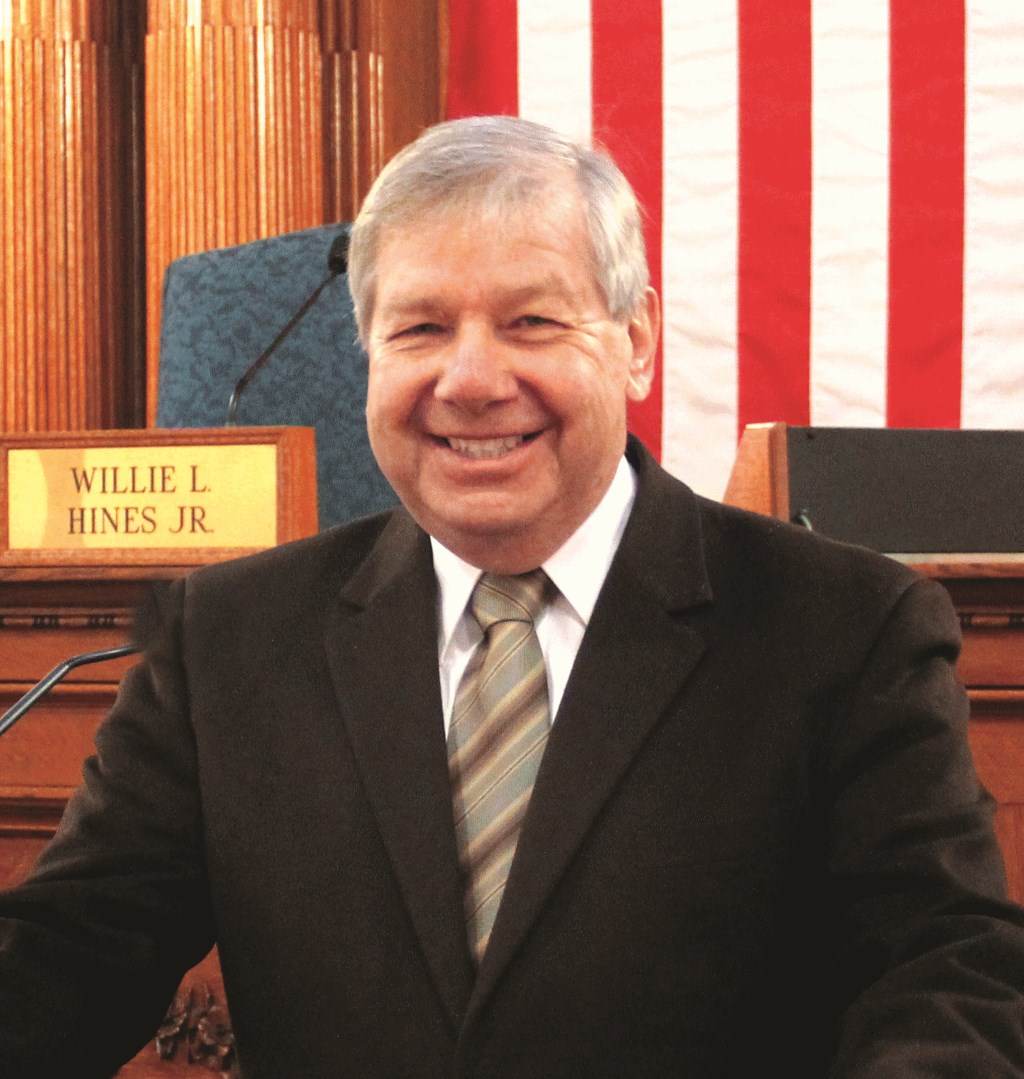Ald. Witkowski: Proposed sex offender residency ordinance “badly off-balance”
"This ordinance is badly off-balance and unworkable."
A proposed ordinance relating to residency restrictions and loitering regulations for sex offenders in the City of Milwaukee would place nearly half of the city’s available housing units for convicted offenders in the 13th Aldermanic District.
“This ordinance is badly off-balance and unworkable, and I will be working to make sure it doesn’t pass in its current form,” said Alderman Terry L. Witkowski, chair of the Council’s Public Safety Committee and representative of the 13th Aldermanic District. “We need a solution to stem the influx of sex offenders into the City of Milwaukee, but this ordinance is not the answer.”
The proposed ordinance (Council file # 140364 – attached), authored by Alderman Tony Zielinski and slated for a hearing before the Common Council’s Steering and Rules Committee at 1:30 p.m. on Thursday, June 12, in room 301-B at City Hall, creates a residency restriction for designated sexual offenders, and would bar those offenders from establishing a permanent or temporary residence within 2,000 feet of any school, licensed day care center, park, recreational trail, playground or any other location designated by the city as a place where children are known to congregate.
Using the 2,000-foot designation, the city’s Legislative Reference Bureau produced a report showing that 397 housing units would be available to designated sex offenders in certain areas of the city under the proposed ordinance. Of those 397 units, the report showed that 185, or 47 percent of all housing for sex offenders, are located in the 13th District, with the remainder scattered in only four of the remaining 14 Aldermanic Districts, Alderman Witkowski said.
The 13th and the 11th Aldermanic Districts combined account for 304 of those 397 units. Alderman Witkowski said he questions the effectiveness of any legislation that clusters more than three-quarters of all available housing for sex offenders on Milwaukee’s far South and Southwest Sides when 10 of the Aldermanic Districts would escape having to house any sex offenders whatsoever.
“This legislation would essentially create islands of sex offenders and impact the viability of long-established neighborhoods,” Alderman Witkowski said. “I am encouraging residents who are concerned about the possible location of sex offenders in their area pay attention to this important issue,” he said.
Under the proposed ordinance, a designated sex offender is defined as any person who is required to register under s. 301.45, Wis. Stats., Wisconsin Sex Offender Registry Program, for any offense against a child, or any person who is required to register under s. 301.45, Wis. Stats., and who has been designated a Special Bulletin Notification (SBN) sex offender pursuant to s. 301.46(2) and (2m), Wis. Stats. Applicable offenses include first degree sexual assault, sexual intercourse with a child and incest with a child.
“The reason we’re facing this problem in the first place is because of a vacuum of leadership on this issue at the state level,” Alderman Witkowski said. “State leaders have been content to use Milwaukee as a de facto dumping ground for convicted sex offenders as other municipalities passed sex offender residency restrictions. It’s time for the Department of Corrections to step up and provide some real leadership on this issue.”
Attachment: Legislative file text
Number
140364
Version
ORIGINAL
Reference
070237
Sponsor
ALD. ZIELINSKI, PEREZ, DONOVAN AND BAUMAN
Title An ordinance relating to residency restrictions and loitering regulations for sex offenders.
Sections
106-51 cr
106-53 cr
Analysis
This ordinance creates a residency restriction for designated sexual offenders. A designated sex offender is defined as any person who is required to register under s. 301.45, Wis. Stats., Wisconsin Sex Offender Registry Program, for any offense against a child, or any person who is required to register under s. 301.45, Wis. Stats., and who has been designated a Special Bulletin Notification (SBN) sex offender pursuant to s. 301.46(2) and (2m), Wis. Stats. Examples of registerable offenses include first degree sexual assault, sexual intercourse with a child and incest with a child.
A designated offender shall not establish a permanent or temporary residence within 2,000 feet of any school, licensed day care center, park, recreational trail, playground or any other place designated by the city as a place where children are known to congregate. The city clerk shall maintain an official map showing prohibited locations as defined by this section.
The residency restriction does not apply if:
- The sex offender established the permanent residence or temporary residence before the effective date of this section.
- The sex offender was under 17 years of age, and is not required to register under s. 301.45 or 301.46, Wis. Stats.
- The school, licensed day care center, park, recreational trail, playground or any other place designated by the city as a place where children are known to congregate opened after the sex offender established the permanent residence or temporary residence.
- The residence is also the primary residence of the sex offender’s spouse, parents, grandparents, siblings or children provided that such spouse, parent, grandparent, sibling or child established the residence at least 2 years before the designated offender established residence at the location.
A designated offender violating the residency restriction shall be subject to a forfeiture of not less than $1,000 not more than $2,500 for each violation. Each day a violation continues shall constitute a separate offense. The city may also seek equitable relief.
This ordinance also prohibits a designated offender from loitering in or prowling in the following locations: schools, licensed day care centers, parks, recreational trails, playgrounds or any other places designated by the city as places where children are known to congregate. This section does not apply to designated offenders if they are exercising their First Amendment rights protected by the U. S. constitution or Wisconsin constitution, including freedom of speech, the free exercise of religion, and the right of assembly. Any person violating this provision shall upon conviction forfeit not less than $500 nor more than $5,000.
This ordinance takes effect 60 days after passage and publication.
Body
Whereas, The Wisconsin Statutes provide for punishment, treatment and supervision of persons convicted or otherwise responsible for sex crimes against children, including their release into the community; and Whereas, Chapter 980 of the Wisconsin Statutes provides for the civil commitment of sexually violent persons, a more dangerous type of sex offender, and specifically, at s. 980.08, Wis. Stats., following such commitment, under certain conditions, provides for the supervised release of such persons into the community; and
Whereas, According to a 1997 report titled Sex Offenses and Offenders, by the U.S. Department of Justice, the median age of the victims of imprisoned sexual assaulters was less than 13 years old and the median age of rape victims was 22 years; and 19% of those serving time for sexual assault and an estimated 24% of those serving time for rape had been on probation or parole at the time of the offense; and
Whereas, In 1994, it was estimated that 12% of imprisoned violent sex offenders had a prior conviction for rape or sexual assault while 61% had a prior felony for other crimes; and
Whereas, Furthermore, the Common Council has reviewed the findings of a number of State Legislatures across the United States, including, Pennsylvania, Alabama, Iowa, Florida, Maine and Louisiana, as they pertain to laws enacted which relate to, and in part impose restrictions upon sex offenders with respect to residency; and
Whereas, The Common Council has reviewed the decision of the U. S. Court of Appeals for the 8th Circuit, in Doe v. Miller, 405 F.3d 700, 716 (8th Cir. 2005), providing in part; “The record does not support a conclusion that the Iowa General Assembly and the Governor acted based merely on negative attitudes toward, fear of, or a bare desire to harm a politically unpopular group. [Citation omitted]. Sex offenders have a high rate of recidivism, and the parties presented expert testimony that reducing opportunity and temptation is important to minimizing the risk of re-offense. Even experts in the field could not predict with confidence whether a particular sex offender will re-offend, whether an offender convicted of an offense against a teenager will be among those who “cross over” to offend against a younger child, or the degree to which regular proximity to a place where children are located enhances the risk of re-offense against children. One expert in the district court opined that it is just “common sense” that limiting the frequency of contact between sex offenders and areas where children are located is likely to reduce the risk of an offense. [Citation omitted]. The policymakers of Iowa are entitled to employ such “common sense,” and we are not persuaded that the means selected to pursue the State’s legitimate interest are without rational basis”; and
Whereas, Since 2007, there have been 3 Wisconsin court cases addressing the legality of sex offender residency restriction ordinances: City of Franklin v. Steven R. Hanke, 07- CV-9978 (Milw. County Cir. Ct. 2007), Village of Menomonee Falls v. Jason R. Ferguson, 2011 WI App 73 (Wis. Ct. App. 2011), and City of South Milwaukee v.Kester, 2013 WI App 50 (Wis. Ct. App. 2013); and
Whereas, In each of the 3 Wisconsin cases, the courts upheld the legality and enforceability of sex offender residency restriction ordinances; and
Whereas, The City of Milwaukee is a place of residence for families with children; and
Whereas, Both s. 62.11(5), Wis. Stats., and s. 4-10, Milwaukee city charter, provide that the Common Council may enact legislation to protect the health, safety and welfare of the residents of the City of Milwaukee; now, therefore
The Mayor and Common Council of the City of Milwaukee do ordain as follows:
Part 1. Section 106-51 of the code is created to read:
106-51. Residency Restrictions for Sex Offenders.
1. FINDINGS AND INTENT. The common council finds that repeat sex offenders, sex offenders who use physical violence, and sex offenders who prey on children are sex predators who present an extreme threat to the public safety. Sex offenders are extremely likely to use physical violence and to repeat their offenses; and most sex offenders commit many offenses, have many more victims than are ever reported, and are prosecuted for only a fraction of their crimes. This makes the cost of sex offender victimization to society, while incalculable, clearly exorbitant. It is the intent of this section not to impose a criminal penalty but to serve the city’s compelling interest to promote, protect, and improve the health, safety and welfare of the citizens of the city by creating areas around locations where children regularly congregate in concentrated numbers wherein certain sex offenders and sex predators are prohibited from establishing temporary or permanent residence.
2. DEFINITIONS. For the purposes of this section: a. “Child” means a person under the age of 16 years.
b. “Designated offender” means any person who is required to register under s. 301.45, Wis. Stats., for any offense against a child or any person who is required to register under s. 301.45, Wis. Stats., and who has been designated a Special Bulletin Notification (SBN) sex offender pursuant to s. 301.46(2) and (2m), Wis. Stats.
c. “Permanent residence” means a place where the person abides, lodges or resides for 14 or more consecutive days.
d. “Temporary residence” means a place where the person abides, lodges or resides for a period of 14 or more days in the aggregate during any calendar year and which is not the person’s permanent address or a place where the person routinely abides, lodges or resides for a period of 4 or more consecutive or non-consecutive days in any month and which is not the person’s permanent residence.
3. RESIDENCY RESTRICTION. a. Restriction. In absence of a court order specifically exempting a designated offender from the residency restriction in this subsection, a designated offender shall not establish a permanent residence or temporary residence within 2,000 feet of any school, licensed day care center, park, recreational trail, playground or any other place designated by the city as a place where children are known to congregate.
b. Measurement of Distance. b-1. The distance shall be measured by following a straight line from the outer property line of the permanent or temporary residence to the nearest outer property line of a school, licensed day care center, park, recreational trail, playground or any other place designated by the city as a place where children are known to congregate.
b-2. The city clerk shall maintain an official map showing prohibited locations. The city clerk shall update the map at least annually to reflect any changes in the prohibited locations. These prohibited locations shall be designated on the map as child safety zones.
4. RESIDENCY RESTRICTION EXCEPTIONS. A designated offender residing within a prohibited area as specified in sub. 3 does not commit a violation of this section if any of the following applies:
a. The person established a permanent residence or temporary residence and reported and registered the residence as provided in s. 301.45 Wis. Stats., before the effective day of this section.
b. The person was under 17 years of age and is not required to register under s. 301.45 or 301.46, Wis. Stats.
c. The school, licensed day care center, park, recreational trail, playground or any other place designated by the city as a place where children are known to congregate within 2,000 feet of the person’s permanent or temporary residence was opened after the person established the permanent or temporary residence and reported and registered the residence as provided in s. 301.45, Wis. Stats.
d. The residence is also the primary residence of the person’s spouse, parents, grandparents, siblings or children provided that the spouse, parents, grandparents, siblings or children established the residence at least 2 years before the designated offender established residence at the location.
5. PENALITIES. a. A designated offender who violates sub. 3, shall be subject to a forfeiture of not less than $1,000 not more than $2,500 for each violation and in default of payment may be imprisoned as provided by law. Each day a violation continues shall constitute a separate offense. The city may also seek equitable relief.
Part 2. Section 106-53 of the code is created to read: 106-53.
Loitering of Sex Offenders.
1. LOITERING. It shall be unlawful for any person defined as a designated offender under s. 106-51-2-b, to loiter or prowl, in the locations specified in s. 106-51-3-a, in a place, at a time, or a manner not usual for law-abiding individuals under circumstances that warrant alarm for the safety of persons or property in the vicinity. Among the circumstances which may be considered in determining whether such alarm is warranted is the fact that the actor takes flight upon appearance of a peace officer, refuses to identify himself or herself or manifestly endeavors to conceal himself or herself or any object. Unless flight by the actor or other circumstances makes it impracticable, a peace officer shall prior to any arrest for an offense under this section, afford the actor an opportunity to dispel any alarm which would otherwise be warranted, by requesting him or her to identify himself or herself and explain his or her presence and conduct at the locations specified in s. 106-51-3-a. No person shall be convicted of an offense under this section if the peace officer did not comply with the preceding sentence, or if it appears at trial that the explanation given by the actor was true and, if believed by the peace officer at the time, would have dispelled the alarm.
2. EXCEPTIONS. This section shall not apply where the actor was by his or her parent, guardian or other adult person having his or her care, custody or control, or where that actor was exercising First Amendment rights protected by the U. S. constitution or Wisconsin constitution, including freedom of speech, the free exercise of religion, or the right of assembly.
3. PENALTY. Any person violating this section upon conviction shall forfeit not less than $500 nor more than $5,000, and in default of payment may be imprisoned as provided by law.
Part 3. This ordinance takes effect 60 days after passage and publication.
LRB APPROVED AS TO FORM
________________________
Legislative Reference Bureau
Date:______________________
Attorney
IT IS OUR OPINION THAT THE ORDINANCE
IS LEGAL AND ENFORCEABLE
_____________________________
Office of the City Attorney
Date:________________________
Requestor
Drafter
LRB152432-1
Amy E. Hefter
6/3/2014
NOTE: This press release was submitted to Urban Milwaukee and was not written by an Urban Milwaukee writer. While it is believed to be reliable, Urban Milwaukee does not guarantee its accuracy or completeness.
Mentioned in This Press Release
Recent Press Releases by Ald. Terry Witkowski
Ald. Witkowski introduces Winter Wonderland Holiday Light display in the Garden District
Dec 19th, 2018 by Ald. Terry WitkowskiNews release from Alderman Terry L. Witkowski























